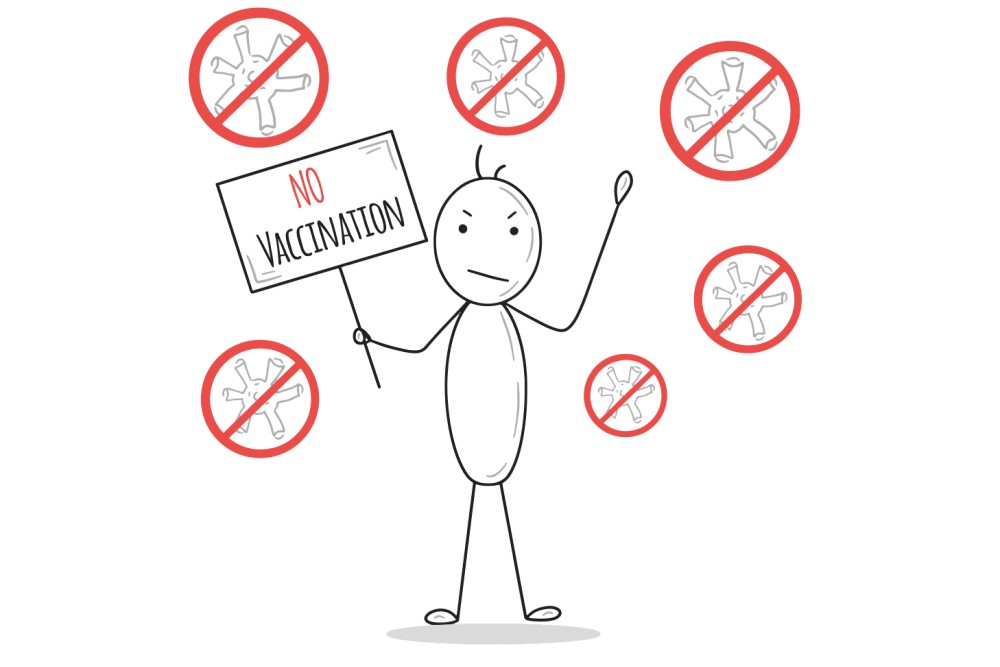The pro-life movement appears to be on the cusp of winning its crowning triumph — the overturning of the constitutional abortion regime established by two Supreme Court cases, Roe v. Wade and Planned Parenthood of Southeastern Pennsylvania v. Casey. In oral argument last December for the case of Dobbs v. Jackson Women’s Health Organization, involving a constitutional challenge against a Mississippi law banning abortion after fifteen weeks, all of the Court’s conservative wing — with the possible exception of Chief Justice Roberts — appeared ready and willing to abandon fifty years of precedent and declare, in Justice Kavanaugh’s words, that the “Constitution is silent and, therefore, neutral on the question of abortion.” Thus, it seems appropriate to consider now how the legal landscape might shift in response to this momentous development.
In what seemed like an attempt to mollify coastal liberals, during oral argument for Dobbs Justice Kavanaugh and Mississippi’s Solicitor General, Scott Stewart, speculated as to the relatively limited fallout we might expect. Seeking to paint a rosy picture of what the future might hold, Kavanaugh asked Stewart whether, if Mississippi prevailed, a “majority of states still could or… presumably would continue to freely allow abortion.” Stewart answered that this outcome was “consistent with our view.” Earlier in the argument, Stewart suggested that a ruling in Mississippi’s favor would serve the “many people [who] vocally just really want[] to…decide [the abortion question] locally….”
But Kavanaugh and Stewart’s implication that pro-choice states could simply continue to permit abortion after the Court upholds Mississippi’s law is somewhat disingenuous. Many liberals and conservatives seem to think that if Roe is overturned, the question of abortion’s legality would automatically vest in the states. This is far from clear. Congress could, if it wished, pass legislation under the Commerce Clause that either prohibited or permitted abortion nationwide, thereby preempting state law. (The Commerce Clause is the most likely constitutional “hook” here because abortions are services sold in interstate commerce). This possibility means that the oft-repeated claim that returning abortion to the states by overturning Roe will lessen the national-level rancor surrounding abortion rests on a false premise.
When Roe was decided in 1973, thirty-one states forbade abortion in all circumstances except to save the life of the mother. Some of these states never repealed their pre-Roe abortion statutes. When the Supreme Court declares a state law unconstitutional, it is not automatically repealed; without legislative action, it stays on the statute books, unenforceable but still a part of the state’s legal code. If Roe is overturned, these “dormant” statutes could easily spring back to life. Thus, a pro-life ruling might not endanger abortion access only in states that, like Mississippi or Texas, passed anti-abortion statutes after 1973 in anticipation of the eventual overturning of Roe. Moreover, although the issue is not definitively settled, recent Court precedent suggests that its decisions about federal law have “full retroactive effect,” at least in civil cases. This raises the possibility that if a plaintiff sues an abortion doctor for conduct that took place before Roe was overturned pursuant to state law, the defendant might not be able to defend herself by claiming that her behavior was constitutionally protected at the time.
One particularly interesting exchange in the Dobbs oral argument concerned the possible effect of overturning Roe on other seminal cases involving reproductive and sexual rights, such as Griswold v. Connecticut — which declared that the right of married couples to buy and use contraceptives is protected by the constitution — or Lawrence v. Texas and Obergefell v. Hodges, which struck down bans on homosexual intimacy and same-sex marriage, respectively. Justice Barrett asked Solicitor General Stewart whether a decision in Mississippi’s favor would have adverse effects on these other decisions. Stewart replied that two features distinguish them from Roe: “Negative stare decisis considerations,” and that none of those other decisions “involve the purposeful termination of human life.” In saying this, Stewart was suggesting two lines of reasoning that the Court’s conservative majority could use to overrule Roe: that Roe doesn’t have the same precedential weight as other “watershed” decisions like Brown v. Board of Education because key elements of Roe were abandoned in Casey, and that states have a compelling interest in fetal life.
However, in a later colloquy between Stewart and Justice Sotomayor in which the latter noted that all of these decisions rested on “substantive due process,” Stewart denied that Griswold, Lawrence, and Obergefell were vulnerable on the grounds that Mississippi is “quite comfortable with Washington v. Glucksberg and how it analyzes substantive due process.” By “substantive due process,” Sotomayor and Stewart were referring to a Supreme Court doctrine according to which the Due Process Clause of the Fourteenth Amendment protects certain substantive rights, such as privacy or autonomy, and not merely procedural rights to judicial process when the government deprives persons of life, liberty, or property. In Roe, the Court held that the Due Process Clause guarantees a right of privacy that includes the right to abortion. The rationales for Griswold, Lawrence, and Obergefell all relied to one extent or another on the substantive due process doctrine. Nevertheless, the very idea of substantive due process is something of a bugbear among conservative lawyers and legal scholars, including some Supreme Court Justices. Thus, Sotomayor was pointing out to Stewart that should the Court overturn Roe by rejecting substantive due process, the other decisions on sexual and reproductive rights could easily fall with it.
Stewart’s reply was to point to the Glucksberg case, decided twenty-five years after Roe, in which the Court held that only rights that are “deeply rooted in the nation’s history” are protected by the Due Process Clause. Stewart was in essence saying that Mississippi was not arguing for abandoning substantive due process, so long as the Court adheres to the Glucksberg standard. By that standard, according to Stewart, abortion rights are not among the rights protected by substantive due process, since abortion rights do not have deep roots in America’s history. The obvious problem with this reply is that rights to birth control, homosexual sex, or same-sex marriage are also not deeply rooted in the nation’s history — a point that Sotomayor began to articulate before being interrupted and sidetracked by Stewart.
This discussion has ventured into the constitutional weeds in order to illustrate the point that the ramifications of the Court’s ruling in Dobbs will crucially depend upon the precise nature of the reasoning it uses to support it. If the Court decides to overrule Roe on the narrow ground that the state has a compelling interest in fetal life, then other substantive due process rights may survive. But if the Court uses Dobbs as an opportunity to affirm and apply the Glucksberg standard, or even to call the doctrine of substantive due process into question, then these other decisions may be left vulnerable to challenge. In general, the Court likes to decide issues on the narrowest grounds possible, but there are exceptions to this rule. Moreover, as I mentioned, there are a number of Justices who are openly hostile to substantive due process as a whole. In that context, a Glucksberg-based decision that preserves substantive due process but potentially affects a host of other important cases might appear to some Justices like a reasonable middle ground. We can only speculate.
The ramifications of Roe’s death are unpredictable. In this column, I have emphasized some possible consequences that add up to a darker picture of life after Roe than even many left-leaning commentators predict. However, there are other possible effects that may be less desirable to the pro-life side. Although studies suggest that overturning Roe will, in the short term, appreciably depress abortion rates — mainly by increasing travel distances between pregnant women and abortion providers — the longer-term effects are less clear. In the years leading up to Roe, many states were liberalizing their abortion laws. As millions of women find themselves wholly cut off from access to safe abortion services, that trend may continue if Congress does not act. In the fullness of time, it is quite possible that the pro-life side will find the death of Roe a Pyrrhic victory.






